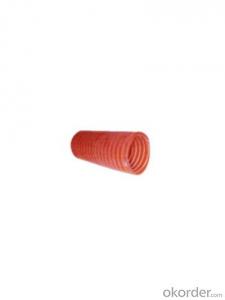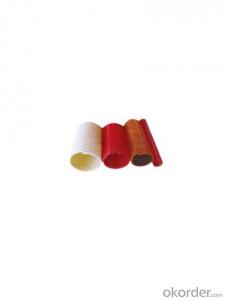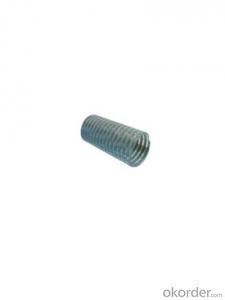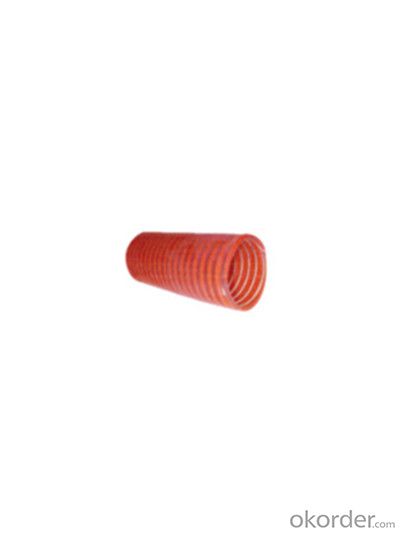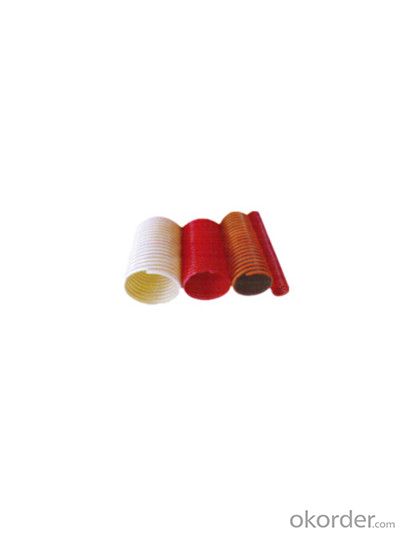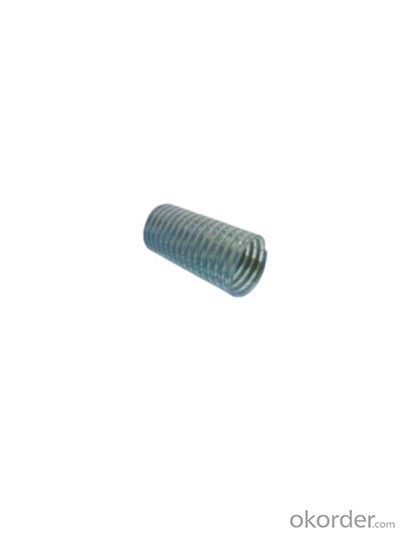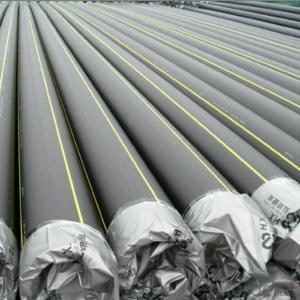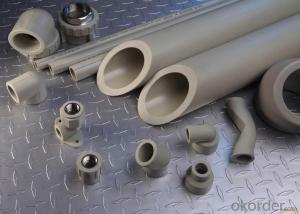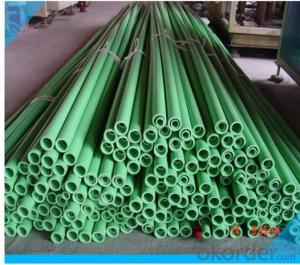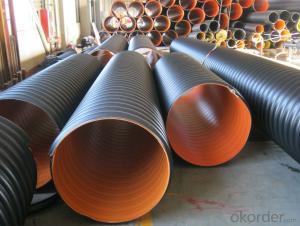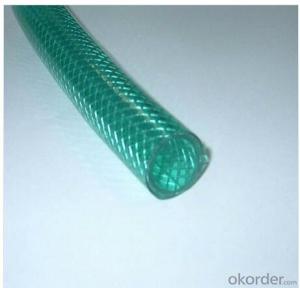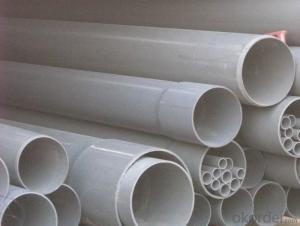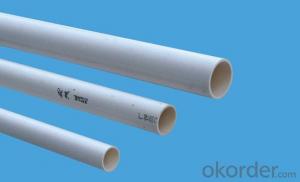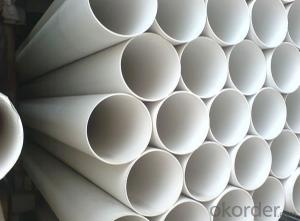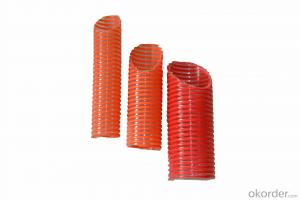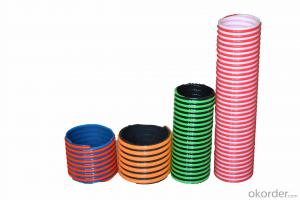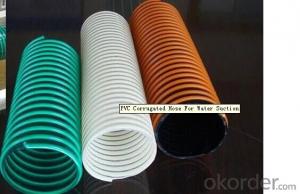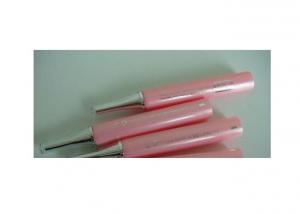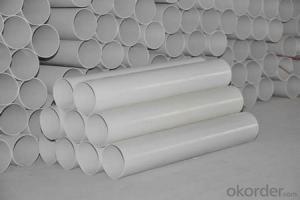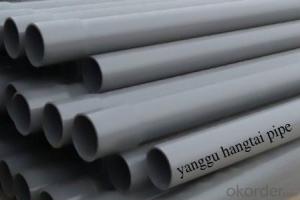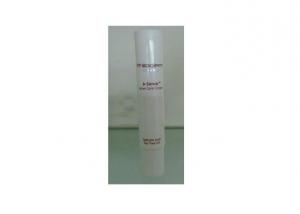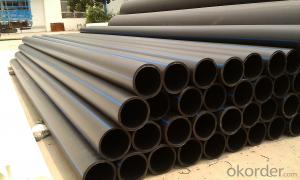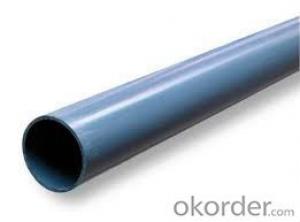Plastic Tubes PVC Korean Sand Suction Sand Blasting Pipe 152mm
- Loading Port:
- China Main Port
- Payment Terms:
- TT OR LC
- Min Order Qty:
- -
- Supply Capability:
- -
OKorder Service Pledge
OKorder Financial Service
You Might Also Like
PVC Korean Sand Suction, Sand Blasting Pipe
Specifications:
1) Size 152mm
2) new PVC material
3) spiral zinc-plated steel wire
4) full new material
5) smooth bore
Applications:
Suction applied to sand-blasting of vessels, shipbuilding tust, pumping ore, coal dust, as well as cereals(rice, wheat, malze) and other solid material or granule material.
Charateristics:
The product has excellent flexibility of the song has good flexbility, abrasion resistance and aging resistance, the tube has to withstand pressure and cacuum to withstand double the performance of vacuum-80kpa(600mm Hg) conditions can be normal use, the bursting pressure of not less than three times the working prssure.
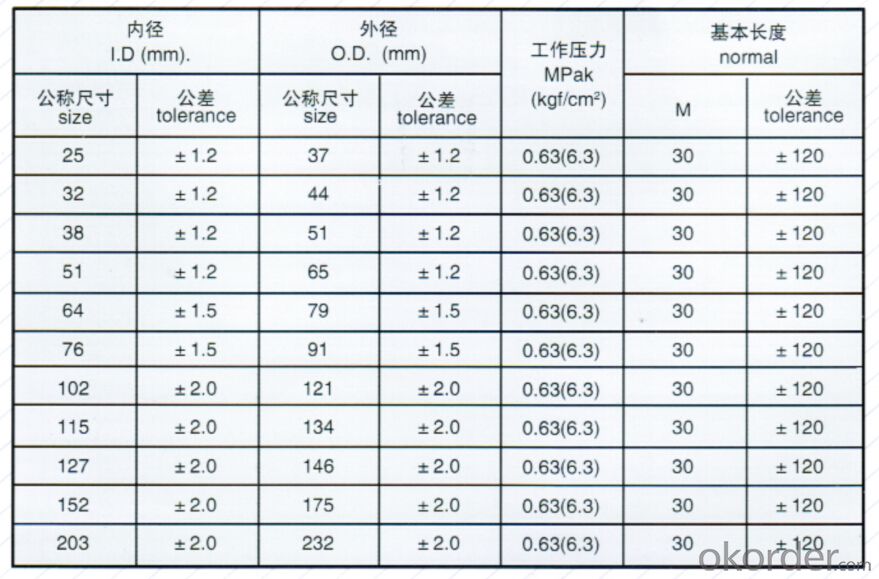
- Q: i recently got started with oil paint, and some of my tubes are leaking quite a bit. i seal the cap well, and there are no holes or anything in the tubes. i read that putting the tubes under extreme heat or sunlight can cause them to leak, but i do neither of these things.how do you prevent/solve this?
- Take a small piece of Suran wrap or thin plastic wrap and put it over the top first before you put the cap back on that will help prevent it from leaking
- Q: a. ultraviolet (germicidal light)b. 121 C at 15 psi for 15 minutesc. 160 C for 2 hoursd. all are correct
- If it were a Glass tube the answer would be A. UV Light does not go through glass well and would not kill much. If it is a plastic tube, D.
- Q: Can plastic tubes be used for storing art supplies or materials?
- Yes, plastic tubes can be used for storing art supplies or materials. Plastic tubes provide a convenient and efficient way to organize and protect various art supplies such as brushes, pens, pencils, and paint tubes. They are lightweight, durable, and often come with airtight caps, ensuring the longevity and safety of the stored materials. Additionally, plastic tubes are transparent, allowing artists to easily identify and access the supplies they need.
- Q: Can plastic tubes be used for insulation in HVAC systems?
- Yes, plastic tubes can be used for insulation in HVAC systems. They provide excellent thermal insulation properties, are lightweight, and resistant to moisture, making them an effective choice for insulating HVAC pipes and ducts.
- Q: Can plastic tubes be used for storing and transporting hazardous materials?
- No, plastic tubes are not suitable for storing and transporting hazardous materials as they may not provide sufficient protection against leaks, spills, or chemical reactions that can occur with certain substances. It is important to use approved containers specifically designed for hazardous materials to ensure safety and compliance with regulations.
- Q: would it be toxic?could u melt the tubing to the cups with a lighter?
- air line tubing is probobly to thin to make an effective vacuum hose, but no it wouldnt hurt them to try, you could fuse it with a lighter, sound like a lot of work though. what are the cotton balls for? mollies can eat, algea wafer, shrimp pellets, pellet food, granules, flake food, live frozen or freeze dreid= daphnia, shrimp, worms, fruitflies... sliced raw or blanched veggies like cucmber squash, zucini, spinich
- Q: What is the best adhesive to keep the paper on a plastic tube (Its an MM mini tube and standard scrapbook paper). I tried glue dots and it worked for 2 hrs then came off on its own. Id prefer to stay away from super glue since it could easily glue to my hands.
- Can you wrap the paper around the tube and just glue the paper to itself, or tape the paper to itself?
- Q: I'm going to make manicotti and the recipe calls for a stuffing tube. Can I use a spoon or maybe a plastic bag with a tip cut off?
- The latter works perfectly as you can throw it away when complete with your stuffing task.
- Q: Can plastic tubes be used for storing chemicals or reagents?
- Yes, plastic tubes can be used for storing chemicals or reagents.
Send your message to us
Plastic Tubes PVC Korean Sand Suction Sand Blasting Pipe 152mm
- Loading Port:
- China Main Port
- Payment Terms:
- TT OR LC
- Min Order Qty:
- -
- Supply Capability:
- -
OKorder Service Pledge
OKorder Financial Service
Similar products
Hot products
Hot Searches
Related keywords
